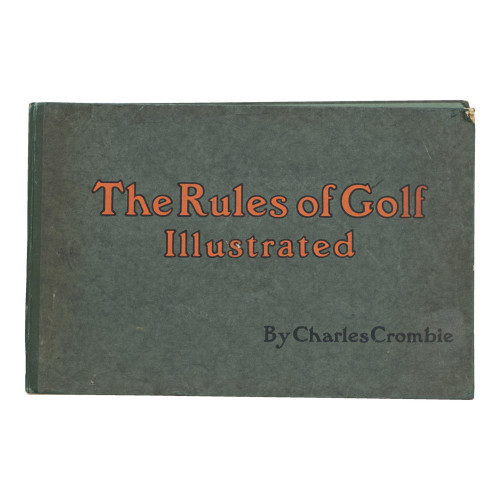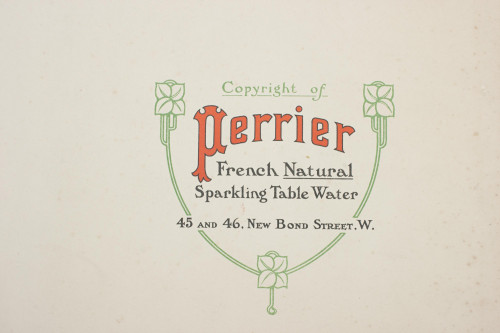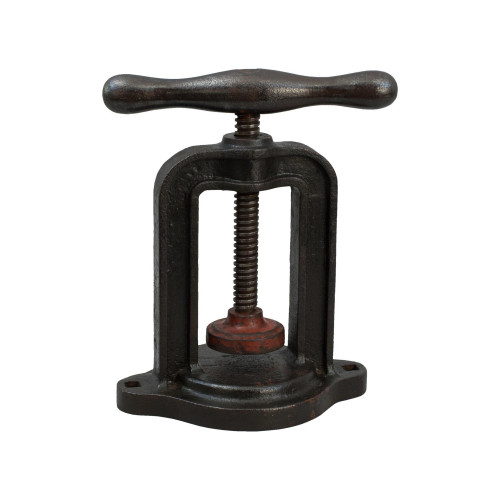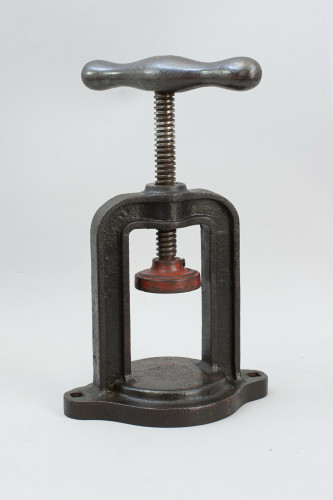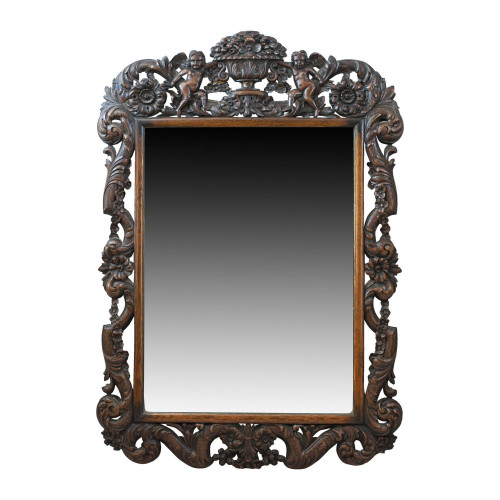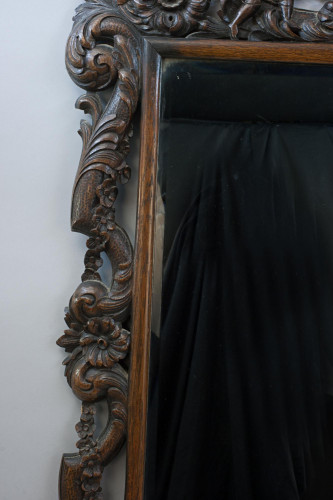- Home
- Accessories
- General
- Antique Ballot Box By George Kenning Of London
Antique Ballot Box By George Kenning Of London
Antique Ballot Box By George Kenning Of London
29728
George Kenning Ballot Box.
A beautiful antique 19th century mahogany ballot box, most probably used in a masonic lodge, a gentlemen's club or even a golf club to vote in new members. The ballot box with a gilt inscription 'YES' and 'NO' above two drawers with a circular central aperture to accept the votes, balls. Comes complete with a selection of small wooden balls, light and dark. To the rear is an ivorine label 'Kenning. ManufacR. London. Liverpool. Manchester & Glasgow'. George Kenning was himself a Freemason and a manufacturer of gold, silver, and tinsel lace ornaments, fringes, trimmings, braids, tassels, gimps, cords, wires, straps, thread, twist, plate etc. He also executed embroidery in gold, silver, and worsted. He furnished the regalia and every requisite for the various societies, was a Masonic jeweller, clothier, and publisher, and supplies banners, flags, bannerets etc.
Committees would have used the box for a secret vote or 'ballot' using the balls to register the votes, white balls accept, and black balls reject. This is where the term "black ball" is thought to have originated. The drawers at the bottom would then be pulled out, votes counted, and the result announced.
An excellent ballot box in original condition with wonderful colour and patina. Last image shows the ballot box with another one we have available #29664, priced at £680.
The Makers of Highest Quality Masonic Regalia And Accessories
Acquired by Toye & Co. during 1956/7, and became Toye, Kenning & Spencer Ltd. during 1962.
Since the foundation of Freemasonry in England and Wales just over three hundred years ago, the most prominent name of the many suppliers to emerge during those years was George Kenning, who having worked for Edward Stillwell and Sons, during the 1840s, moved and established a business under his name in 1860, setting up in number 1 to 4 Little Britain, in the City of London, to pursue his ideas that the Stillwells had rejected!
From there George Kenning's business rapidly expanded with major manufacturing of textiles in Coventry, with over 800 Looms, and many other ancillary machines of the day producing Braiding, Gold and Silver Wyre Drawing for hand embroideries, employing in that one establishment alone, over 400 employees (finally destroyed during the 1940 great blitz of Coventry, being so near to the Cathedral, when the Company was re-established at a semi derelict factory in nearby Bedworth; with just 13 looms recovered in pieces, reassembled to resume production for the war effort).
Already in London large production facilities had been developed at twin buildings at numbers 1 to 4 Eagle Wharf Road, a then Company freehold site with a large Company car park, between the buildings; the one building was a full four storey metals manufactory; the other of equal size for textile, including machine embroidery.
Branches were set up around the country in Edinburgh, Glasgow, Manchester and elsewhere.
George Kenning greatly enlarged both his capabilities in manufacture, covering many markets, to all Civil and Military Personnel, Shipping lines, the growing Sports and Club Markets and many other Societies.
This was achieved by George Kenning producing his own Global Newspaper, which Kenning arranged to be distributed in the UK and world-wide, especially to the then British Empire and other English speaking Countries, taking news to a wide audience, especially not so discreetly, regarding Regalia for his ever growing customer base, so this performed the function of both news, which often took time to reach many territories, but also greatly increased Kenning's Global sales into these specialised Markets.
Much later on, Kenning acquired Spencer & Co., during 1947, the original manufacturer of masonic Clothing, which was produced in 19-21 Great Queen Street, and moved his branch in that street, number 17, into 19 -21, whilst Spencer had previously bought out their Metal Manufacturing high quality manufacturing supplier, WJ Dingley, based at 77 Warstone Lane, in the Birmingham Jewellery quarter.
The whole was acquired by Toye & Co. during 1956/7, and became Toye, Kenning & Spencer Ltd. during 1962.
Taken from gksmasonic.com
George Kenning, Goldsmith, Manufacturer of Gold, Silver, arid Tinsel Lace Ornaments, Masonic Jeweller, &c., 9, Howard Street (off Jamaica Street) .-
The name of George Kenning is well known all over the world. Indeed, his particular handicraft has made him famous both at home and abroad, and he has attained a position and a repute which cannot be assailed by any rival.
Mr. Kenning is a manufacturer of gold, silver, and tinsel lace ornaments, fringes, trimmings, braids, tassels, gimps, cords, wires, straps, thread, twist, plate, &c. ; and he also executes embroidery in gold, silver, and worsted. He furnishes the regalia and every requisite for the various societies, is a Masonic jeweller, clothier, and publisher, and supplies banners, flags, bannerets, &c., &c.
Mr. Kenning's headquarters and manufactory are in London, his addresses being 1, 2, 3, and 4, Little Britain ; 195, 196, and 197, Aldersgate Street, E.C. ; and 16, and 16A, Great Queen Street, W.C. He has depots, also in Monument Place, Liverpool, and in Bridge Street, Manchester, besides the establishment in Glasgow now under notice. It is, perhaps, not too much to assert that no other house in the United Kingdom, in the same line, can compare with his ; and the high character of his wares and workmanship is recognised by all classes of the community who have had dealings with him. In one sense Mr. Kenning may be termed a monopolist, but this is simply because his manufactures are unrivalled, and, therefore, he secures the lion's share of the trade in those branches of ornamental art in which he is engaged.
His Glasgow branch was established in the year 1878, at the present address, 9, Howard Street, and it is most admirably managed by his popular and talented representative, who possesses all the qualifications necessary for conducting a business of such an intricate and important character as the one we have described. The premises, which comprise a warehouse and office, are commodious and convenient, the warehouse being handsomely fitted up with plate-glass showcases, &c., and the stock of Masonic jewellery and paraphernalia and of other specimens of Mr. Kenning's manufactures, is exceedingly choice and valuable. His execution of orders is marvellous, and would only be credited by those who have patronised him. The business is conducted upon the most straightforward and honourable lines, the proprietor being satisfied with fair and reasonable profits. There is nothing which appears to be beyond Mr. Kenning's capabilities in his own profession, and whatever he undertakes is executed to perfection.
http://www.glasgowwestaddress.co.uk/
Dimensions:
1850-1899
C. 1860
Mahogany
United Kingdom
In very nice condition.
Thank you for your enquiry.
We will get back to you soon.
Please create wishlist to add this item to
RELATED ITEMS



























